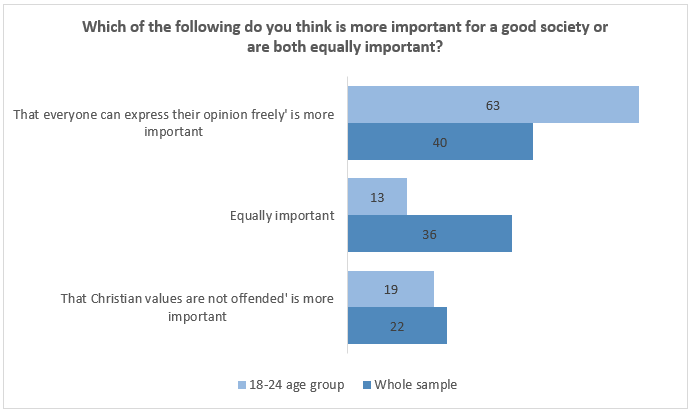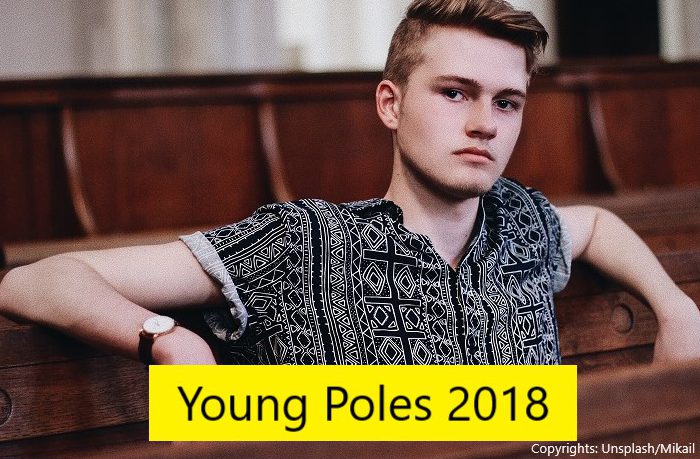Passive supporters of democracy
By Csaba Molnár and Veszna Wessenauer.
Young Hungarians may not be politically active, but most of them support an open society, according to research by the Open Society European Policy Institute and d|part.

Most young Hungarians aren’t interested in politics or activism, yet they are deeply committed to democratic values. This pattern has been consistent over the last ten years, although little is known so far about what 18-to-24 year- olds think about specific closed and open society values.
Reports on political participation have shown that youth in Hungary doesn’t like the current political system, but isn’t willing to undertake action that could change it. So how does one capitalise on young people’s support for democratic societies to encourage them to articulate their commitment? This is one of the big challenges ahead.
A more detailed view of young people and open society values
The Hungarian educational system may offer classes in civics and democratic values in the curricula, but not in a way that encourages debate or discussion on social and political issues. Instead, Hungary’s highly centralised public schools are old-fashioned and apolitical, and this may explain why young people are relatively unconcerned about social issues, public affairs and democracy.
Our Voices on values survey reveals that most people aged 18 to 24 evaluated many of the attributes listed as less essential for a good society than the older generations, regardless of whether or not they were open or closed society attributes. For example, they are the least supportive of banning the public practice of non-Christian religions, and they are also the least supportive of an open society attribute, namely that everyone should be allowed to practise their religion freely.
Some attitudes to open society values were often specific to the younger age group. Young respondents showed little interest in closed society attributes, although they did echo the prevalent anti-immigration sentiment in Hungary.
Young Hungarians also shared the prevalent view that majoritarian democracy, or democracy in which the majority decided, is a good thing. This is hardly surprising, as Hungarians have had little experience of liberal democracy.
The heat map shows that all age groups value freedom of speech, but have little concern about extending religious freedom to non-Christians. Younger respondents were more interested than older generations in freedom of the press, and also in equal treatment for new immigrants.
Young people in Hungary value freedom of expression above all other open society values. There may be an easy explanation for this, as free speech was considered one of the main elements of the new political regime and has become a symbol of democracy. It has always been considered a particularly important civil liberty and has lately become more valued still as it is considered under threat.
FIGURE 1: Comparison of Trade-off decisions between whole sample and 18–24 year-old respondents

Despite the prevailing overall mood of hostility to immigrants, young Hungarians believe in their equal treatment, although they see this as the least important open society value. On the other hand, their responses to closed society values shows they are far less nationalistic than older generations. These attitudes are complex, but on the whole they are closer to open society values.
What does this tell us about the discourse on open society in Hungary?
The survey results imply that anti-immigration sentiment and a strong emphasis on traditional Christian and national values are significantly less important to younger respondents. They feel that a good society requires freedom of expression, free media, political pluralism and political dialogue. This differs from the current government’s argument about what makes a good society.
Although young respondents generally evaluated open or closed society attributes as less important than did older age groups, their strongest commitment is towards open society values. Hungary’s young people have the potential to become the most vocal and consistent promoters of an open and democratic society.
–
Csaba Molnár is head of research and quantitative analyst at the Political Capital Institute. Veszna Wessenauer is an analyst and project manager at the Political Capital Institute.
Disclaimer
The views and opinions expressed in this article are those of the authors.



